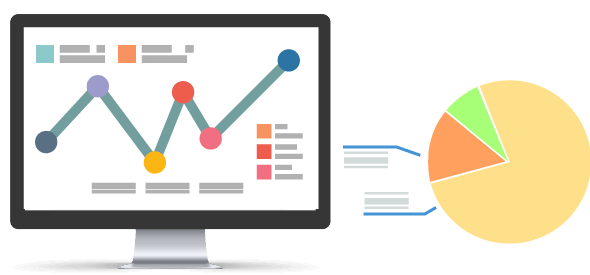By: Whova Team | Last updated: July 7, 2025

Planning a conference can feel like juggling flaming torches while riding a unicycle, especially if you work alone or with a small team. The pressure to deliver a seamless, engaging event with limited resources is real.
With the right strategies and tools, even a lean team can organize a professional, memorable event. This guide offers over 20 expert event planning tips to help you plan, promote, and execute your next conference confidently.
Before the Event
The groundwork you lay before the event determines its success. This section covers the essential planning steps to ensure you’re well-prepared.
1. Start early and set clear goals
The earlier you begin planning your conference, the more control you’ll have over logistics, budget, and quality. Starting early also gives you time to align your team, secure top-tier speakers, and build a compelling experience for attendees. However, early planning is only effective when paired with clear, measurable goals that guide every decision.
- Begin planning at least 6–12 months in advance. This will ensure you have enough time to check venue availability, speaker scheduling, and budget flexibility.
- Define what success looks like to you and your team regarding the number of registrations, satisfaction score, qualified leads, etc.
- Meet with leadership, sponsors, and key team members to align your goals and ensure everyone agrees on the event’s priorities.
- Set measurable KPIs to track progress by breaking them into categories like attendee experience, content quality, logistics, and ROI.
2. Know your audience and define your purpose
Understanding your audience is the cornerstone of a successful event. When you know who you’re planning for, you can craft an experience that resonates, engages, and delivers value.
- To understand their needs, create attendee personas based on job roles, industries, and experience levels.
- Tailor content and format to audience preferences. Don’t forget to consider accessibility needs like captioning or language translation.
- Clarify the event’s mission and value proposition and ensure they align with your audiences’ goals and organization objectives.
- Segment your audience for personalized experiences. You can also offer customized agendas or recommendations through your event planning platform.
3. Use surveys ahead of time
Surveys are one of the most powerful tools in your event planning toolkit. They allow you to move beyond assumptions and make decisions based on real attendee preferences, expectations, and needs.
- Send pre-event surveys to potential attendees to help you understand what they want.
- Ask about preferred topics, speakers, and formats, but keep the survey short and succinct.
- The data collected can be used to prioritize high-interest topics and speakers and to identify logistic preferences or concerns.
- Analyze trends and issues to improve from past events.
4. Pick the right venue
Choosing the right venue is one of the most critical decisions in event planning. The venue sets the tone for your conference, impacts the attendee experience, and can either streamline or complicate your logistics. A well-chosen venue supports your goals, reflects your brand, and accommodates your audience comfortably and safely.
- Ensure venue capacity matches tracked event attendance. Remember to also plan for extra room in case attendance increases.
- Check for accessibility and transportation options, along with parking or valet services.
- Evaluate AV capabilities and Wi-Fi strength.
- Confirm availability of breakout rooms and catering. You’ll need to know if food and beverage services are available or if you must hire an external caterer.
5. Build a timeline + use project tools
A well-structured timeline is the backbone of any successful event. When paired with the right event management tools, your timeline becomes a living roadmap that guides your event from concept to completion.
- Break down tasks into weekly milestones to help you keep track of deadlines and prioritize tasks.
- Assign responsibilities to team members, ensuring everyone is aware of and accountable for their responsibilities.
- Use tools like Whova, Trello, or Asana to keep track of your projects and everyone’s progress.
- Schedule regular check-ins to stay on track and develop contingency plans.
6. Set a realistic budget and negotiate
A well-planned budget is the financial blueprint of your event. It ensures you allocate resources wisely, avoid overspending, and make informed decisions. But budgeting isn’t just about crunching numbers—it’s also about negotiating smartly to get the most value from every dollar spent.
- List all potential expenses, including hidden costs and a contingency buffer. Remember to include taxes, tips, and travel costs.
- Get multiple quotes from vendors, especially for primary services like AV, staging, catering, etc.
- Negotiate for discounts or added services by bundling vendors. For example, the same vendor can provide AV and staging services for a packaged deal.
- Track spending against the budget regularly and make any adjustments, if necessary.

Whova’s event budget template can help you plan your event budget to save money and time!
7. Use one platform (avoid tool overload)
Juggling too many platforms can lead to confusion, miscommunication, and inefficiencies. Consolidating your event operations into a single, integrated platform simplifies your workflow and enhances the attendee experience.
- Choose an all-in-one event management software so you can easily track progress.
- Centralize registration, agenda, and communication to help your team collaborate better and stay on task.
- Reduce confusion by minimizing tool switching and reducing the risk of errors and duplicated efforts.
- Ensure the platform supports mobile access and analytics.
Promoting the Event
Once your event is planned, it’s time to spread the word. Here’s how to effectively market your conference and build anticipation.
1. Multi-channel marketing plan
A diverse event marketing plan ensures you don’t miss potential attendees who may be active on different platforms.
- Use email, social media, websites, and forums to create hype.
- Tailor messaging to each platform to ensure you reach the right audience.
- Create a content calendar for consistent promotion. This will also ensure that your message and branding are consistent.
- Use paid ads like Google Ads, Linkedin Sponsored Posts, or Facebook Ads to boost visibility.
2. Empower speakers/sponsors to help
Your speakers and sponsors are powerful allies in promotion. They can contribute their networks and credibility.
- Provide branded graphics and sample posts in a media kit.
- Encourage them to share with their networks and invite their followers or clients.
- Offer incentives for top promoters.
- Feature them in your marketing materials, such as brochures or social media posts. You can also invite them to participate in pre-event interviews or webinars.
4. Create hype on social media
Social media is your stage for building excitement and community before the event. Here are some examples of how you can build momentum on your digital channels:
- Post countdowns and teaser videos, such as ” Only 10 days to go before XYZ event! Are you ready?” Use branded hashtags and encourage attendees to use them.
- Highlight speakers and sessions: “Meet our keynote speaker – (name), an expert in XYZ, who will be speaking on (insert topic).”
- Share behind-the-scenes content like photos of your team prepping, packing gift bags, or setting up the venue.
- Run contests and giveaways using event hashtags.

Whova’s event software has customizable flyer templates for easy, professional-looking social media posts
During the Event
The big day has arrived. These tips will help you manage the event smoothly and keep attendees engaged.
1. Use a mobile app for engagement
A mobile event app centralizes communication, enhances interactivity, and empowers attendees to personalize their experience. A well-designed app can significantly boost engagement, streamline logistics, and reduce stress for both organizers and participants.
- Provide real-time updates and notifications. Send push notifications for schedule changes, reminders, or room updates.
- Enable live polling and Q&A sessions so attendees can vote on session topics or respond to speaker questions.
- Allow attendees to build personalized agendas with filters for tracks, topics, or speakers.
- Facilitate networking through in-app messaging.

Whova’s event app streamlines communication with real time announcements, meet-up information and attendee messaging!
2. Prepare your speakers and staff
Your speakers and staff are the face of your event. They shape the attendee experience and ensure everything runs smoothly. Investing time in their preparation builds confidence, reduces last-minute chaos, and helps your event shine.
- Conduct tech checks and dry runs to reduce any potential mishaps.
- Distribute detailed schedules and contact lists to ensure everyone understands the agenda and knows who to contact for questions or emergencies.
- Assign clear roles and responsibilities. Tip: Utilizing a volunteer management software can efficiently handle recruiting and organization.
- Have a help desk or support team on standby.
3. Add value with small surprises
While your sessions and speakers are the core of the event, thoughtful, unexpected touches can elevate the experience from good to unforgettable.
- Include welcome kits or swag bags. Local items like treats or artisan goods are a nice touch that gives a sense of place.
- Offer snack stations or coffee carts to energize attendees in between sessions.
- Plan surprise guest appearances or giveaways.
- Create photo booths or interactive installations where attendees can leave notes.
4. Monitor live feedback
Real-time feedback allows you to gauge attendee satisfaction, identify issues as they arise, and make on-the-fly adjustments that improve the experience.
- Use in-app surveys and feedback forms to capture immediate reactions.
- Track session ratings and comments to check, understand, and gather real-time opinions.
- Address issues in real time.
- Thank attendees for their input and highlight some key takeaways from the session.
5. Handle hiccups with backup plans
The key to running a smooth, professional event isn’t avoiding every problem; it’s being prepared to handle them calmly and effectively. Having contingency plans ensures that minor hiccups don’t become major disruptions and that your team can respond confidently.
- Have contingency plans for tech failures – items like spare microphones, projectors, or laptops on site will be helpful.
- Prepare backup speakers or sessions in case of no-shows or delays.
- Monitor weather and travel disruptions. You can offer hybrid or virtual participation options as well.
- Stay calm and communicate transparently.
After the Event
Your work isn’t over when the event ends. Post-event actions are crucial for learning, improving, and maximizing your event’s value.
1. Send post-event surveys
Post-event surveys are essential for capturing honest feedback, measuring success, and identifying opportunities for improvement. They also show attendees that you value their opinions and are committed to improving future events.
- Ask about content, logistics, and overall experience.
- Keep surveys short and focused—anywhere between 5 and 10 questions would give you a good idea of how attendees feel about your event.
- Offer incentives for completing surveys, such as entry into a prize drawing, discounts on future events, or access to exclusive content.
- Analyze results for actionable insights. You can also use post-event surveys to identify patterns and recurring suggestions for the next event.
2. Debrief with your team
A structured debrief helps you capture lessons learned, celebrate wins, and identify areas for improvement. It’s a critical step in building a culture of continuous improvement and ensuring your next event is even better.
- Hold a meeting to review what went well and what didn’t. Invite all key team members, including volunteers, vendors, and partners.
- Document lessons learned and suggestions.
- Celebrate successes and recognize contributions.
- Update your planning checklist, so your next event goes better.
3. Leverage event content for marketing
From speaker presentations and attendee interactions to photos and recordings, every element can be repurposed to extend your event’s impact, nurture leads, and build momentum for future initiatives.
- Turn session recordings into blog posts or webinars. You can also break them into short clips for social media or email campaigns.
- Share quotes and photos on social media.
- Create a post-event highlight reel. You can create a thank-you montage or use audience testimonials in your highlight reel.
- Use content like behind-the-scenes footage or audience photos to promote future events.
4. Use feedback to optimize next time
By analyzing attendee insights, team reflections, and performance metrics, you can identify what worked and what didn’t and how to improve your next event. This process of continuous optimization ensures that each event builds on the success of the last.
- Identify areas for improvement. For better planning, you can group feedback into themes like content, logistics, technology, etc.
- Incorporate suggestions into future event planning.
- Track changes and their impact over time.
- Continuously refine your event strategy.

Whova’s event software tracks engagement metrics automatically so you can use them for reporting or presenting
Final Tip
To deliver a high-impact, memorable event, you don’t need a massive budget or a large staff. You need a clear strategy, the right tools, and a commitment to continuous improvement.
Explore Whova’s features and download our comprehensive event planning checklist to get started on your next successful event.


